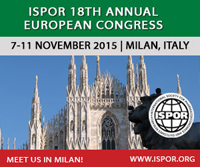[Cost per Responder Analysis of Filgotinib in Patients Suffering from Ulcerative Colitis]
DOI:
https://doi.org/10.7175/fe.v25i1.1554Keywords:
Cost per responder, Ulcerative colitis, Bio-experienced, Clinical response, Clinical remission, Mucosal healingAbstract
OBJECTIVE: To evaluate the costs and benefits associated with the use of biologics and Janus kinase inhibitors (JAKi) for the treatment of bio-experienced patients suffering from ulcerative colitis in Italy.
METHODS: This pharmacoeconomic analysis compared JAKi (filgotinib, tofacitinib and upadacitinib) and biologics (vedolizumab and ustekinumab). A decision tree model with a 1-year time horizon was built in MS Excel in order to estimate treatment cost and clinical efficacy expressed in terms of clinical response (CR), clinical remission (CRe) and mucosal healing (MH). Efficacy of each treatment was estimated using relative risks elaborated from a recent network meta-analysis of 17 RCTs. The investigated population concerned patients previously treated with biologic drugs (bio-experienced). Both induction and maintenance phases were considered and dose escalation (when allowed) was planned for patients not reaching an appropriate response after induction. Outcomes included total treatment cost (acquisition and administration), overall response rate, and cost per responder at one year.
RESULTS: According to the model results, the treatment associated with the best clinical response at 1 year was vedolizumab (69.6%) followed by filgotinib (60.9%) and upadacitinib (60.1%). Despite differences in efficacy, filgotinib resulted in the lowest cost per responder, in every outcome, compared with all the other alternatives. The same trend applies when observing results at the end of the induction phase only. Results were robust to probabilistic sensitivity analyses, filgotinib has a posterior probability to be better than the other alternatives higher than 96% according to all the three response definitions (CR, CRe, and MH).
CONCLUSIONS: Generally, JAKis and vedolizumab were associated with higher treatment response. Among the alternatives included in the analysis, filgotinib has the lowest cost per responder for all the outcomes included. These findings could help deliver more effective and efficient healthcare in the NHS.
Published
How to Cite
Issue
Section
License
Authors who publish with this journal agree to the following terms:
- Authors retain copyright and grant the journal right of first publication with the work simultaneously licensed under a Creative Commons Attribution-NonCommercial 4.0 License that allows others to share the work with an acknowledgement of the work's authorship and initial publication in this journal.
- Authors are able to enter into separate, additional contractual arrangements for the non-exclusive distribution of the journal's published version of the work (e.g., post it to an institutional repository or publish it in a book), with an acknowledgement of its initial publication in this journal. The Publication Agreement can be downloaded here, and should be signed by the Authors and sent to the Publisher when the article has been accepted for publication in this journal.
- Authors are permitted and encouraged to post their work online (e.g., in institutional repositories or on their website) prior to and during the submission process, as it can lead to productive exchanges, as well as earlier and greater citation of published work (see The Effect of Open Access).
- Authors are permitted to post their work online after publication (the article must link to publisher version, in html format)






